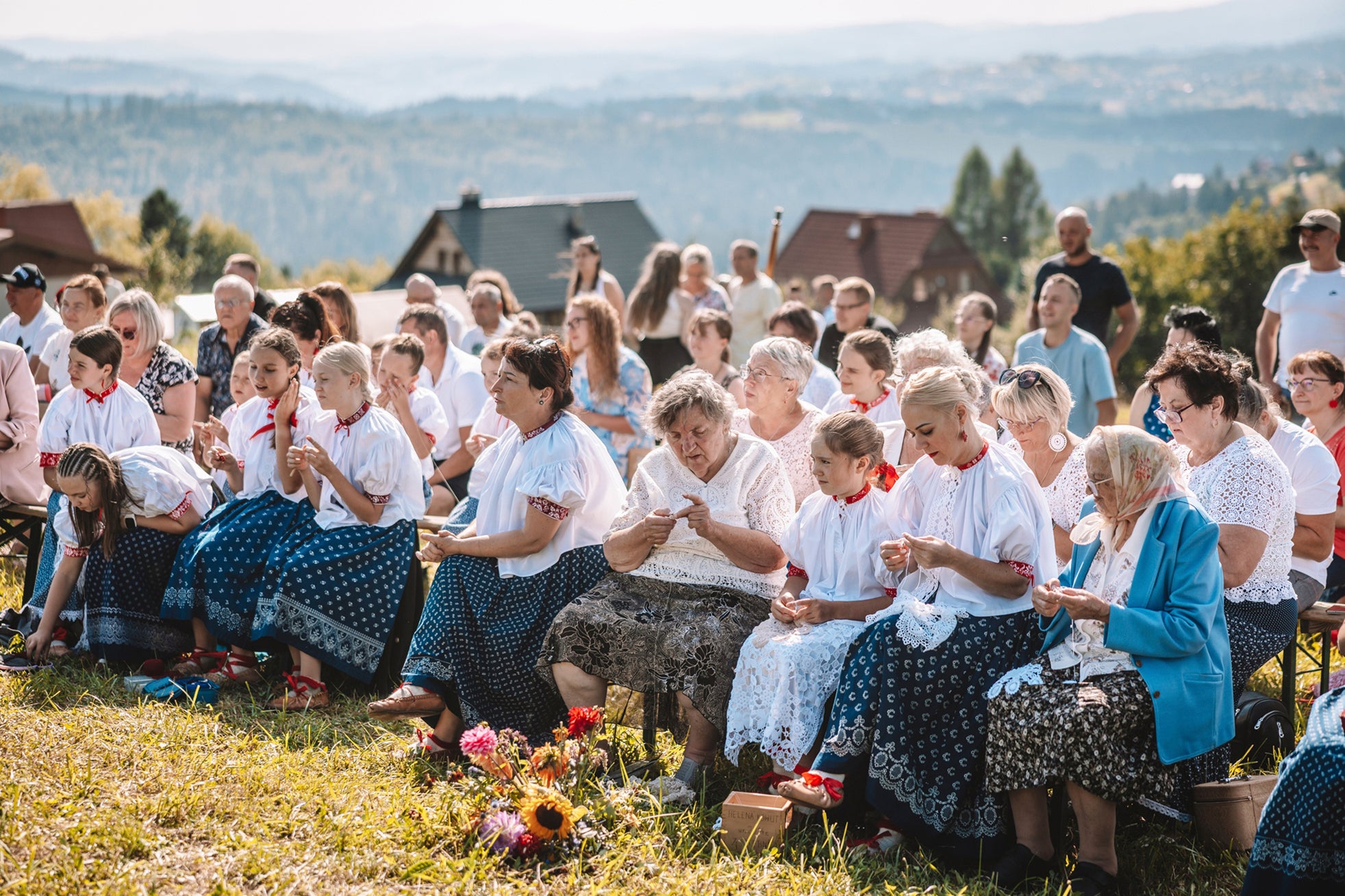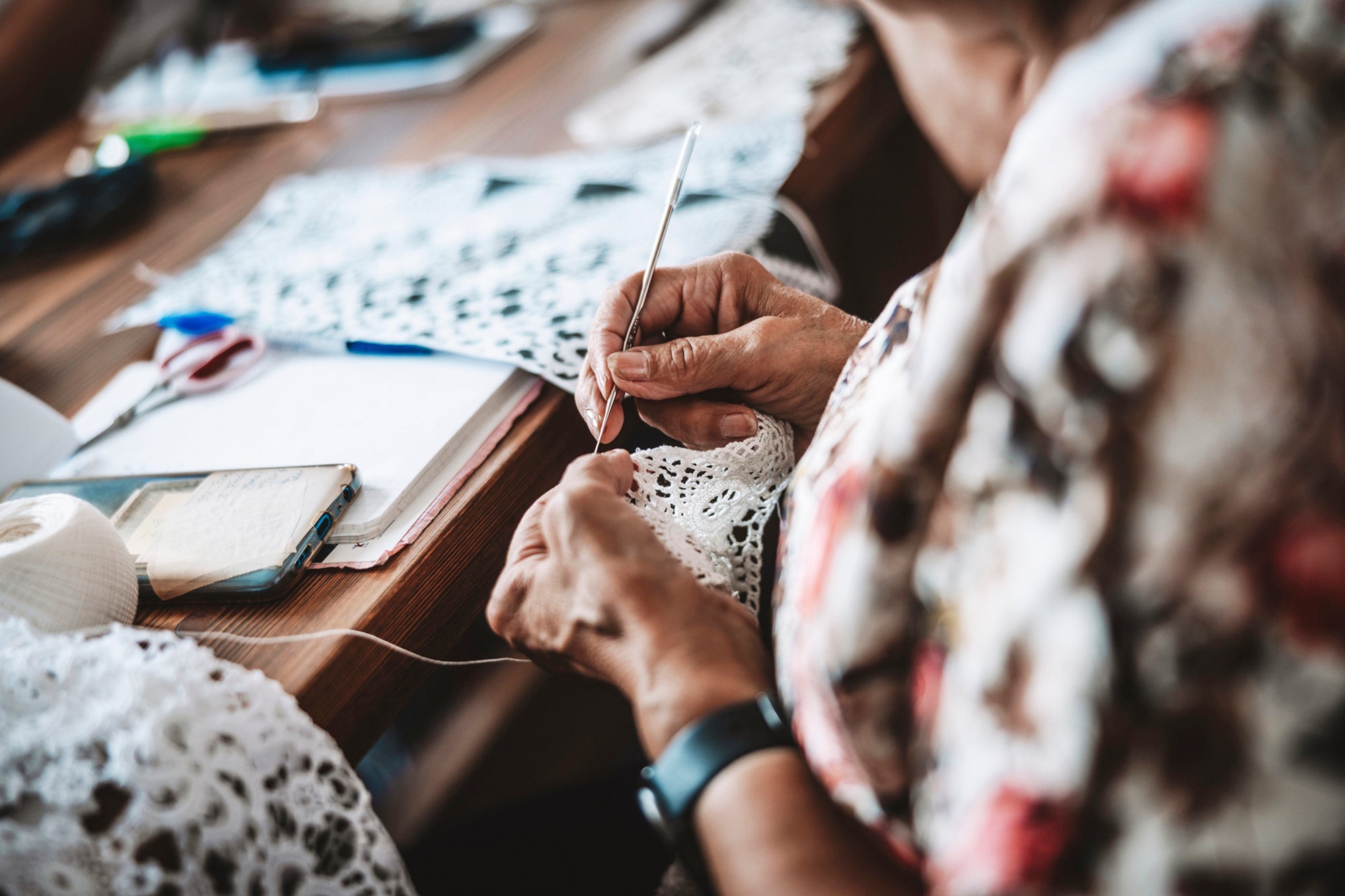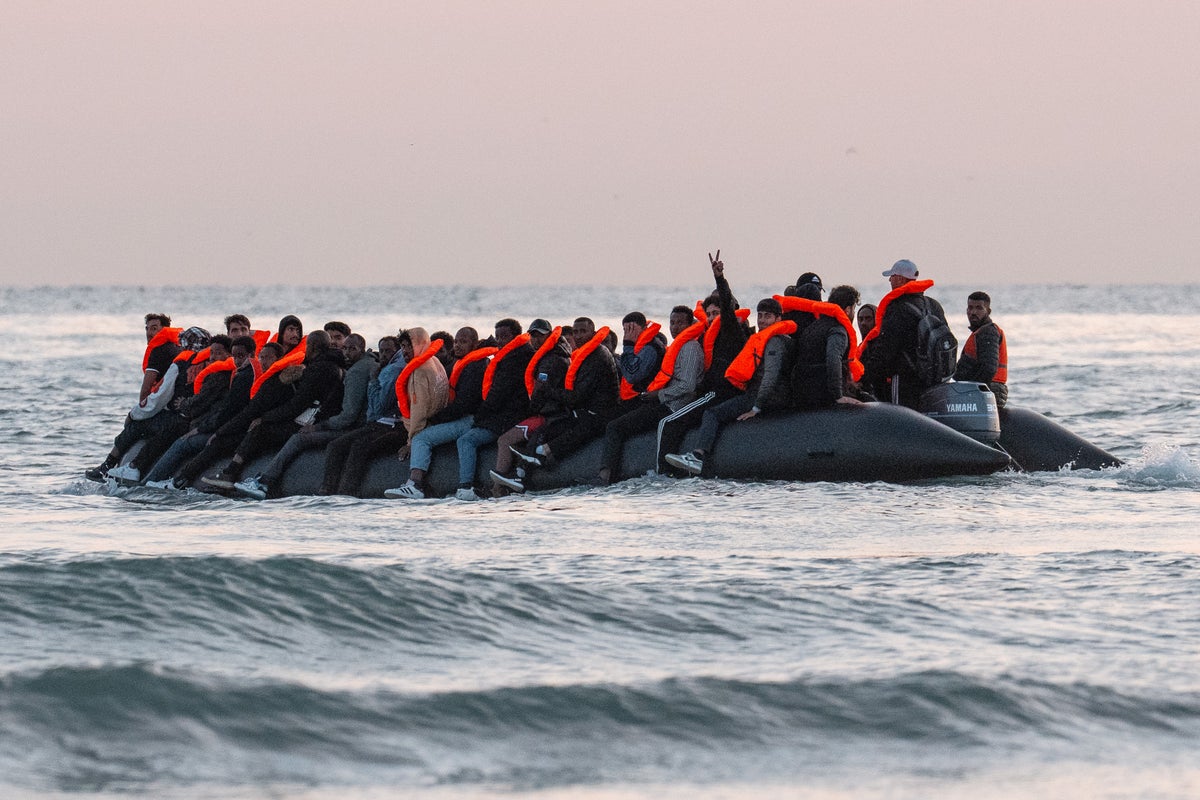A centuries-old tradition of intricate lace crocheting from a small Polish mountain village is experiencing a remarkable global resurgence.
Wiesława Juroszek, who learned the delicate handicraft from family at just six, is now, 53 years on, part of a new generation of women making Koniaków famous.
Their unique creations, from exquisitely crocheted lingerie and wedding dresses to skirts, blouses, and traditional tablecloths, are enjoying a surge in popularity and commanding elevated prices for their skilled artistry.
“In Koniaków almost all the women do ‘hekla,’ as we call it,” Juroszek told The Associated Press. “For us it’s a passion, for us it’s our whole life.”
Around 700 women work as lace makers in Koniaków, which is nestled high in the Beskid Mountains in southern Poland near the border with Slovakia.

The techniques have been passed down for years by Koniaków women, who were following the tradition of previous generations of Polish women who embellished bonnets worn over their hair by crocheting lace ribbons to be tied around their foreheads.
“It was a decorative element. When a woman was married, she had her own,” Juroszek said. “Later, women started making them as table decorations, like napkins, and the shape became round. And the women sold them, which was a way to earn money.”
What began more than 100 years ago simply as work to support household budgets has been transformed into a prized craft. Blouses sell for at least 3,000 to 4,000 złoty ($750 to $1,000) and wedding dress prices reach up to tens of thousands of złoty.
The steep costs are based on the amount of time the women need for their needlework, with even a simple blouse requiring several weeks.
Unlike some other traditional craftworks around the globe, crocheting lace is not fading, it’s flourishing.

Koniaków lace is known for unique patterns that are often inspired by the landscape surrounding the highland village.
“In this tiny village … women create unique patterns from their imagination, compositions of thin threads, flowers and stars,” said Lucyna Ligocka-Kohut, president of the Koniakow Lace Foundation.
“They are surrounded by beautiful nature, so it inspires their motifs,” she added. “We have no templates, no patterns. We create everything from our imagination, and that’s why fashion houses want to work with us, because every design, every napkin, every new dress is something new for us.”
The ladies of Koniaków say each of their lace creations is one of a kind, so it comes as no surprise that international fashion designers noticed the pieces.
Ligocka-Kohut lists brands that have been captivated by the work coming out of the mountain village including Christian Dior, Dolce & Gabbana, Magda Butrym, Rei Kawakubo and Comme des Garçons.
“Koniaków lace has already appeared twice at Paris Fashion Week,” she said.

The most traditional Koniaków lace is mostly made in white or soft ecru. Bolder shades such as deep red, rich black and vivid green are typically reserved for lingerie and swimwear.
The bras, panties, thongs and G-strings are sold online for those who can’t travel to southern Poland for lace shopping.
Homemaker Ewa Lesiewicz, one of the regular Polish customers, is a true fan of the famous lace works.
“I already have a lace blouse, a lace bra, a set with panties and I really like it,” the 63-year-old said. “I also want a set like this: a blouse and a skirt.”


